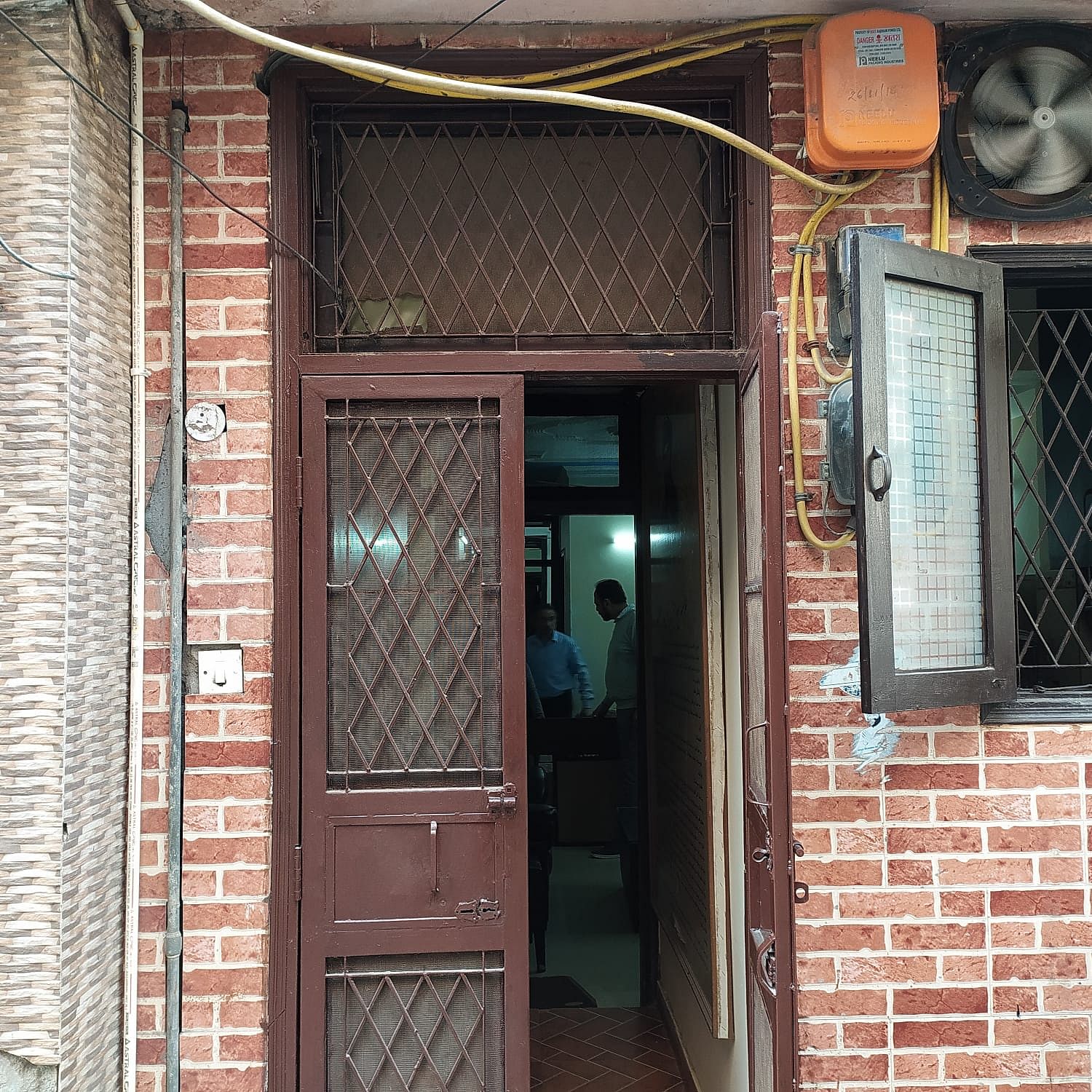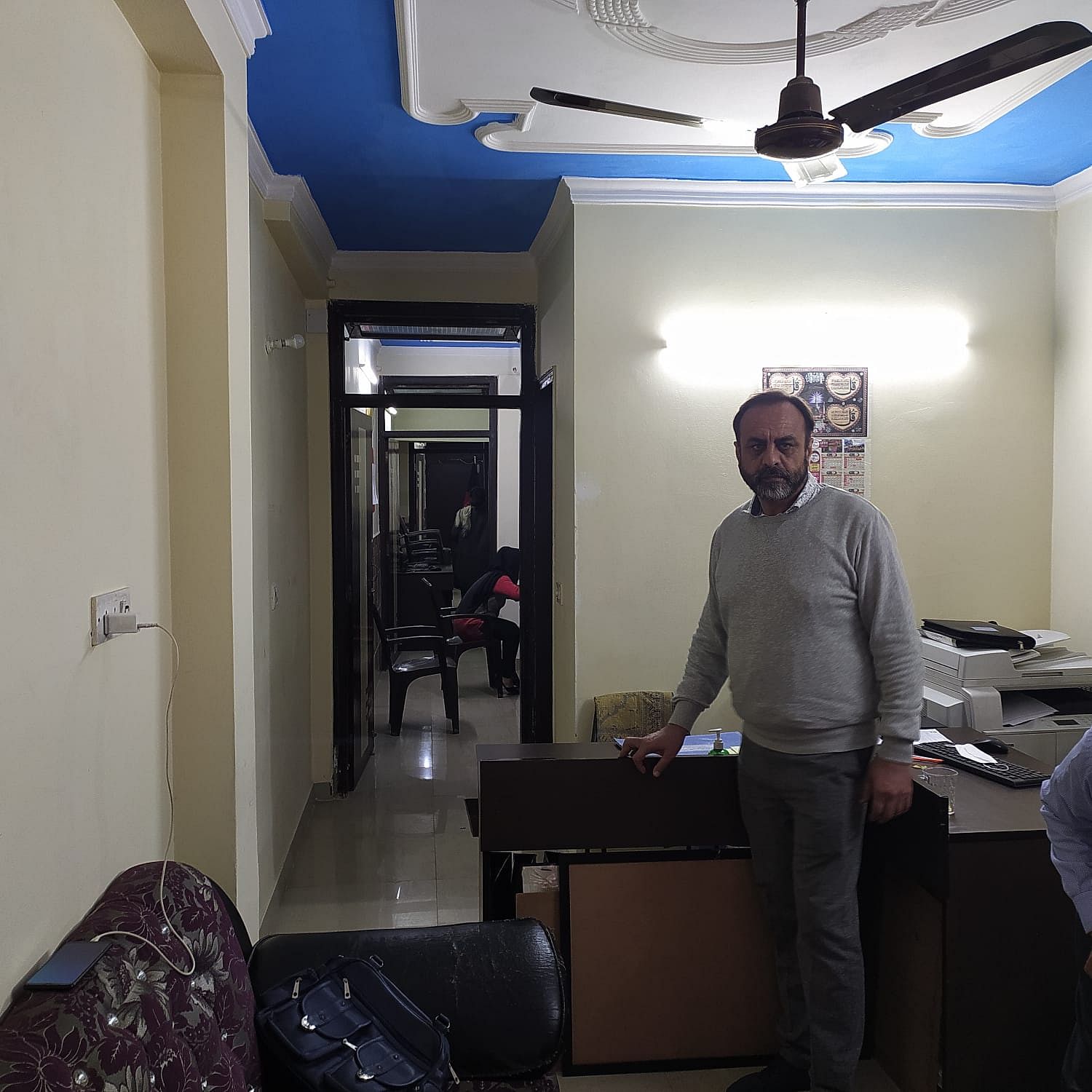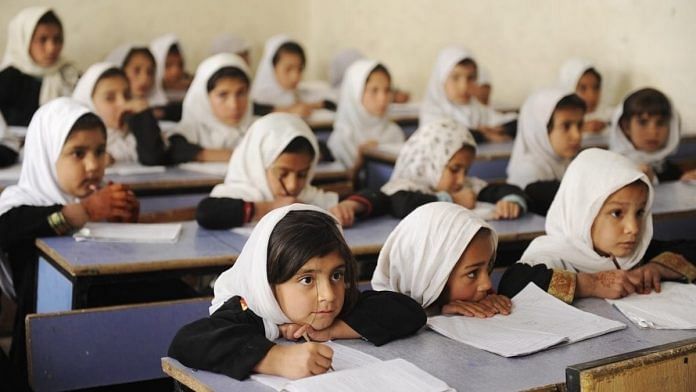New Delhi: Syed Jamaluddin Afghan School, the only school for Afghan refugees in India, used to be located in the basement of a building, tucked away among a row of commercial premises in the national capital’s Bhogal area. It was a small space, but students had a place to call school.
In October, an acute shortage of funds that began with the onset of the pandemic and aggravated after the fall of the Afghan government to the Taliban, made it prohibitive for the school authorities to afford the rent — about Rs 1.2 lakh per month. They forfeited the space.
Now, the school’s director, Sania Feda Taj and her team operate out of a cramped four-bedroom apartment-turned-office located in Bhogal, not too far from where the school was originally located.
“We moved into this office in October because we didn’t have any money. We had to forfeit the basement space for the school also,” Taj told ThePrint.
The school couldn’t pay salaries for 10 months this year to its teachers, some of whom had to sell off personal assets to make it through. While all the teachers still continued, several students left. Only those who could afford a computer or a smartphone are continuing classes online.

“It’s hard to work here because of all the noise. This is a house, you know, not an office,” Taj said. “Hopefully, we will be able to find a new space to set up the school. Already, so many kids have left because they don’t have phones or laptops to attend online classes. We used to have 500 students, now there are 375.”
Last week, the school received a “gift” from the Ministry of External Affairs (MEA), which will help it to continue operating “as usual”.
Also read: Pakistan can’t be Saudi Arabia or Iran. So it’s inching towards Talibanisation
Ten-month backlog of unpaid salaries to teachers
Syed Jamaluddin Afghan School was first set up at Lajpat Nagar in 1994 and then shifted to Bhogal in the mid-2000s. It enrols pupils from classes 1-12 and employs 32 Afghan teachers.
The school used to receive funds from the Afghanistan Ministry of Education through the embassy in Delhi. But due to a combination of factors, the school has been facing fund shortages since 2020.
Taj said the first shortage lasted six months during the pandemic in 2020 when the Ashraf Ghani government was still in power.
The school then didn’t receive funds for disbursement of salaries from January to October this year as the situation in Afghanistan began to deteriorate due to the rapid takeover of the country by the Taliban amid the US withdrawal of troops after a 20-year war.
“From January to October, we did not receive any salary payments for our teachers. In October, we were given three months’ salary payment and on 4 December, we were given seven months’ salary payment for our teachers,” she added.
On 4 December, when the school received funds to clear the 10-month backlog, Farid Mamundzay, who served as ambassador of the previous Afghan government to India, thanked the MEA in a tweet for giving the school a “gift” that will help it to continue operating “as usual”.
I thank @MEAIndia for providing the much-needed assistance to the only Afghan school in India. The Syed Jamaluddin Afghan School in Delhi's Bhogal, is the only educational resource for Afghan refugees and will now continue to operate as usual. The 400 students received a..1/2 pic.twitter.com/a81VAUmAEG
— Farid Mamundzay फरीद मामुन्दजई فرید ماموندزی (@FMamundzay) December 4, 2021
Highlighting that the embassy now pays the rent for the current office, which is about Rs 26,000 per month, Taj said it is “difficult for the embassy also as they are short-staffed”.
Also read: What my 20 years in Afghanistan taught me about the Taliban
Afghan teachers sold gold, cut back on household expenses
The school employs 32 Afghan teachers who receive a monthly salary of Rs 10,000. This is far less than the average salary of a Delhi government school teacher, around Rs 25,000.
Asked how teachers managed without salaries for 10 months, the school’s deputy administrator Kanishka Shahabi said some made cutbacks on household expenses to save money.
“Some teachers have told me that they have been cooking meals without tomatoes to save money. I have seen some of their kids lose 1-2 kg from this,” Shahabi told ThePrint.

For Fareda Waheedi, it has been double the difficulty as she is both a teacher at the school and a parent to one of the students.
“It has been difficult to run the house. The landlord keeps calling and messaging because rent has been pending for a while. I suffer from high thyroid but can’t afford to buy the prescribed medicines right now,” Waheedi told ThePrint, adding that she recently sold some of her own wedding jewellery for some quick cash.
She lives in Bhogal with her husband and four children.
Asked if any teachers have quit to seek a steady income elsewhere, Taj said: “Some students left the school due to inability to cope with online classes but, I must say, not a single teacher has left. Despite not receiving a salary for 10 months, struggling with Covid and watching the Taliban takeover our own country, they stuck with us.”
Waheedi’s 17-year-old daughter, Belqees, a student at the school for the past five years, said she misses the classroom.
“Online classes are easy for me because I have my own phone but most of my friends have to borrow from their parents or older siblings. I miss the classroom, especially for subjects like maths and science that require a lot of rough work, because we had all the materials and tables and chairs to study. Studying from home is very difficult,” she said.
Students have been attending online classes since the onset of the pandemic in 2020, barring two-three days of exams in September. Upcoming exams are also likely to be held online.
(Edited by Amit Upadhyaya)
Also read: Taliban curbs on working women could cut Afghanistan GDP by 5%: UN report



